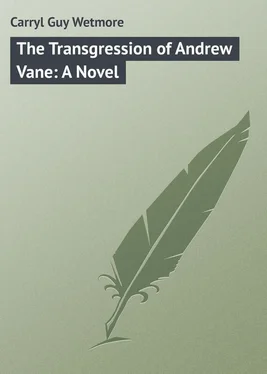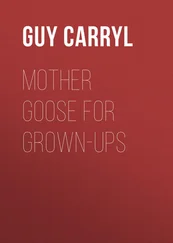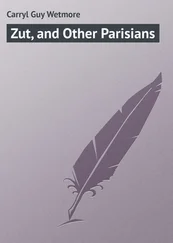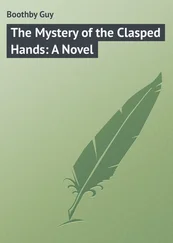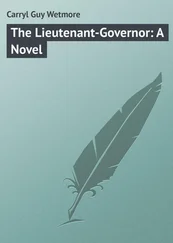Guy Carryl - The Transgression of Andrew Vane - A Novel
Здесь есть возможность читать онлайн «Guy Carryl - The Transgression of Andrew Vane - A Novel» — ознакомительный отрывок электронной книги совершенно бесплатно, а после прочтения отрывка купить полную версию. В некоторых случаях можно слушать аудио, скачать через торрент в формате fb2 и присутствует краткое содержание. Жанр: foreign_prose, Зарубежные любовные романы, на английском языке. Описание произведения, (предисловие) а так же отзывы посетителей доступны на портале библиотеки ЛибКат.
- Название:The Transgression of Andrew Vane: A Novel
- Автор:
- Жанр:
- Год:неизвестен
- ISBN:нет данных
- Рейтинг книги:3 / 5. Голосов: 1
-
Избранное:Добавить в избранное
- Отзывы:
-
Ваша оценка:
- 60
- 1
- 2
- 3
- 4
- 5
The Transgression of Andrew Vane: A Novel: краткое содержание, описание и аннотация
Предлагаем к чтению аннотацию, описание, краткое содержание или предисловие (зависит от того, что написал сам автор книги «The Transgression of Andrew Vane: A Novel»). Если вы не нашли необходимую информацию о книге — напишите в комментариях, мы постараемся отыскать её.
The Transgression of Andrew Vane: A Novel — читать онлайн ознакомительный отрывок
Ниже представлен текст книги, разбитый по страницам. Система сохранения места последней прочитанной страницы, позволяет с удобством читать онлайн бесплатно книгу «The Transgression of Andrew Vane: A Novel», без необходимости каждый раз заново искать на чём Вы остановились. Поставьте закладку, и сможете в любой момент перейти на страницу, на которой закончили чтение.
Интервал:
Закладка:
Carryl Guy Wetmore
The Transgression of Andrew Vane: A Novel
For the things ye do, when your life is new,
And your sin is sinned with a smile,
Ye shall pay full sore, ye men, though the score
The Fates hold back for a while:
Ye shall pay, at the end, for your frauded friend,
For the secret your lips betray,
For the lust and the lie, to the Gods on High
Ye shall pay – ye shall pay – ye shall pay!
Ye shall pay ten-fold, with your heart's best gold,
Ah, tempted women and true!
Ye shall render account, to the full amount,
For each beautiful thing ye do.
For the youth ye yield, for the soul ye shield,
For the pitiful prayers ye pray,
'Tis the fancy of Fate that, soon or late,
Ye shall pay – ye shall pay – ye shall pay!
PROLOGUE
For months past, she had felt that she was weakening, that the crescent wretchedness of five long years – an uninterrupted descent from level to level, on each of which the thorns of disillusion caught at, and tore from her, some shred of hope or self-respect – had done its work at last. Her courage and her faith, inherited, the one from the mental, the other from the moral, vigour of a rigid and uncompromising Puritan ancestry, were slipping from her. What the end was to be, she did not dare to ask; but it lay there ahead, grim and ominous, gradually taking form, through the mist of the immediate future. Its very suggestion of divergence from all that was familiar to her, of being even a degree more monstrous than what she had already suffered, sickened and appalled her, who had never known a dread of mere death, but drew back with unspeakable fear before the looming of this unknown, ultimate degradation.
John Vane had wooed his wife with the easy confidence born of adequate position, adequate means, and more than adequate ability. Four years of Harvard had taught him to believe life in the little Western town which had been his birthplace, to be, for a man of literary bent, a practical impossibility; and when he stepped easily from the halls of his Alma Mater into the offices of a Boston magazine, it was a practical renunciation of his early environment, and an expression of his resolve to follow in the actual as well as the metaphorical footprints of some of the greatest figures in American literature.
Six months later, he announced his engagement to Helen Sterling, the only daughter of a pioneer in copper, whose character had long since built him up a reputation, to which, later, the five figures of his income lent an added lustre. From first to last, from the occasion of the young collegian's presentation to the reigning belle of her season to the moment when she said, "I, Helen, do take thee, John" – and the rest of it – there was, by way of proving the rule, never a stumbling-block in the exceptionally smooth course of their love. They were made for each other, people said, and no one subscribed more confidently to this opinion than themselves.
But – and does ever a honeymoon pass without the uneasy awakening of that latent 'But'? – Helen was not a month older before she was forced to the unwilling conclusion that there was a singular, intangible something lacking in her husband's character. It was not that he was not gifted; for that, his most casual acquaintance knew him to be; – or in love with her; for of that he gave evidence almost as conclusive as would have been furnished by the ceaseless reiteration of that spoken devotion which a woman craves, without hope of receiving, from the man she loves. But things had come to him so easily, so independent of any effort of his own, that he was become the chief of optimists, imbued with the serene and confident laisser aller of the clan; and, now that association was making her intimate with his methods of work, she found them to be wholly haphazard, inspired merely by the whim of the moment, unregulated by any remotest evidence of system. His performances were the meaningless flashes and snaps of Chinese crackers, not the steady and purposeful, if less imposing, fire of a skilfully laid fuse, leading on to great results. His confidence in his own ability, in the certainty of his ultimate triumph, was so absolute that he was content with the minimum of endeavor, oblivious to the fact that only statues can remain thus passive with the assurance that laurel wreaths will be laid before them. He did not realize that the living must pluck their laurels for themselves.
Lacking the initiative which is its indispensable ally, Vane nevertheless possessed all the impatience of restraint or routine characteristic of the creative faculty. A year of editorial work was sufficient to convince him that it was not possible for such a temperament as his to be trammelled by fixed hours, and strait-jacketed by observance of detail. He resigned his position, on the plea of devoting himself entirely to writing, and there ensued a period during which he sunned himself in society's favour, and received his share of flattery in return for several trifles contributed to the magazines, but created nothing worthy even of the infinitesimal effort which he made. A man had to think, to arrange, to compose, he told his wife. Rome was not built in a day, and the mere manual act of transferring his thoughts to paper was a trifle, when contrasted with the process of incubation. So month after month dragged by, and little by little, as his novelty wore off, John Vane dropped out of society's consideration as a literary potentiality, and came to be regarded as nothing more than one of many good-looking, agreeable men-about-town, to whom, in the matter of his wife and his worldly weal, the Fates had been generous beyond the ordinary.
One of the first unmistakable signs of degeneration was his now constant complaint that he was unappreciated. The average man's share of applause is in strict proportion to his deserts. In Vane's case the allowance had been appreciably in excess of his due, but it was exhausted at last; and flattery is a drug which, with indulgence, becomes, a necessity. Deprived of it, he grew fretful and impatient, made occasional abortive efforts at performance of the great things formerly expected of him, and talked savagely of prejudice when his manuscripts came back from the editors, accompanied by polite notes wherein the pill of non-availability was sugar-coated with reference to the pleasure of examining his work, and the regret with which it was returned.
For a time he had his wife's most loyal support and sympathy. She liked to believe that what he said was true, that literary excellence counted for nothing in a commercial age, and that a man who would not conform to silly superficial standards had no chance of recognition. But Helen was a woman to whom a goose was a goose, and a swan a swan, at all times, and regardless of ownership. Moreover, she had been a lover of the best in literature since first she had been given the run of her father's library, and sat for entire afternoons curled into a big arm-chair, skipping the long words of Thackeray or Charles Lamb. Her critical sense, thus perfected, was now too alert to allow of any treachery to standard. Intensely loyal she was, but intensely just, as well; and all her eagerness to believe her husband what he claimed to be could not blind her to the mediocrity, often the utter worthlessness, of his later work. With revelation arose, naturally, an ardent desire to aid him, and strict sincerity, which was her most admirable quality, pointed to candour as the only adequate means. With his resentment of her counsel came her first disheartening insight into the shallowness and perversity of his nature. That he could accuse her of attempting to belittle him, rank her as at one with those who misunderstood him, hurt her more keenly than if he had turned and cursed her. It was the parting of their ways, the first decisive step on the road which she was to follow wearily for five years of discouragement and disillusion.
Читать дальшеИнтервал:
Закладка:
Похожие книги на «The Transgression of Andrew Vane: A Novel»
Представляем Вашему вниманию похожие книги на «The Transgression of Andrew Vane: A Novel» списком для выбора. Мы отобрали схожую по названию и смыслу литературу в надежде предоставить читателям больше вариантов отыскать новые, интересные, ещё непрочитанные произведения.
Обсуждение, отзывы о книге «The Transgression of Andrew Vane: A Novel» и просто собственные мнения читателей. Оставьте ваши комментарии, напишите, что Вы думаете о произведении, его смысле или главных героях. Укажите что конкретно понравилось, а что нет, и почему Вы так считаете.
